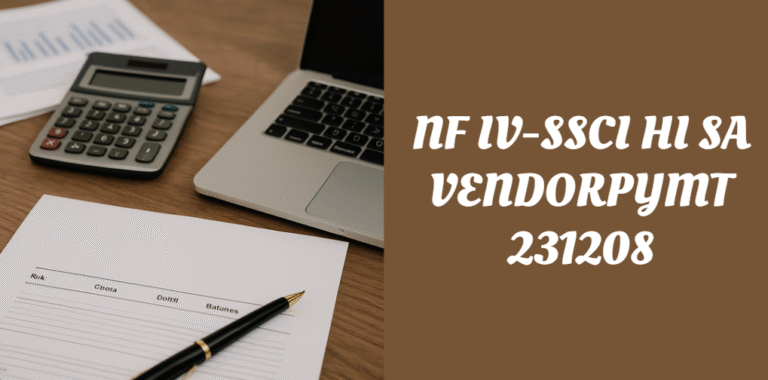Avoid Errors with Expert Financial Report Localization
In the global economy of the present day, precise and correct financial communication can break or make a business transaction. It’s for this reason that numerous companies trust their financial report localization to ensure that the reports are faultless, compliant, and optimized for every market. Not all localization, however, is equal in quality. A slight error in a financial statement can cause legal trouble, erosion of trust, or lost opportunities.
If your company is growing overseas or even trading with international investors having your financial statements localized by a professional translation agency is no longer a choice. It’s necessary.
What Is Financial Report Localization?
Financial report localization is the process of translating and adapting financial documents, like balance sheets, income statements, and audit reports, to meet the language, cultural, and regulatory standards of a specific market.
It’s not just about translating words. It’s about making sure the numbers, formats, tax terms, currency, and even date conventions are understood correctly in the target market.
Why Do Errors Happen in Financial Localization?
Many businesses assume they can use a general translator or a machine translation tool for financial documents. That’s where trouble starts.
Common mistakes include:
- Using incorrect accounting terminology
- Misinterpreting financial abbreviations
- Formatting numbers incorrectly (e.g., 1,000 in the US is 1.000 in Germany)
- Missing compliance references (like GAAP or IFRS distinctions)
These errors might seem minor, but they can cause serious confusion or trigger compliance issues in regulated markets.
Real-World Example: A Costly Localization Mistake
A well-known European retail brand once entered the U.S. market and released an investor report without localizing its financial terminology. Terms like “turnover” (which in the UK refers to revenue) were misunderstood as employee churn in the U.S.
The result? Investors hesitated, media coverage questioned the brand’s financial stability, and the company had to issue a clarification, costing time, reputation, and trust.
This situation could have been avoided with professional financial report localization services.
How Expert Localization Solves the Problem
Working with a professional translation company that specializes in finance brings a layer of expertise that tools or general translators can’t match.
Here’s what you get:
Industry-Specific Expertise
Financial terminology is complex and varies by region. Professional linguists with finance backgrounds understand the subtleties. For example, they’ll know when to use “net income” versus “profit after tax” based on the audience.
Regulatory Accuracy
Different countries follow different financial reporting frameworks (e.g., GAAP in the U.S. vs IFRS internationally). A professional team ensures reports follow the local accounting standards.
Localization of Formats
It’s easy to overlook the small things—date formats (MM/DD/YYYY vs DD/MM/YYYY), decimal separators, or currency symbols. A good localization service won’t.
Confidentiality and Compliance
Reputable translation companies follow strict data privacy rules, including NDA agreements, encrypted file handling, and GDPR compliance if operating within the EU.
Case Study: A US Tech Firm Going Global
A San Francisco-based SaaS company planned to expand into Japan, Germany, and the UAE. They needed all their quarterly reports translated and localized within a tight timeline before an investor roadshow.
They hired a professional translation company with financial localization experts in each target region.
Results:
- All financial reports were localized into three languages and reviewed by in-market accountants.
- Japanese investors appreciated the use of region-specific accounting terms and currency formatting.
- The German report adhered to EU-specific audit requirements.
- The UAE version followed local date formats and was translated into Arabic, with attention to culturally appropriate phrasing.
The company closed three major partnership deals—something leadership partly credits to the clarity and professionalism of the localized reports.
Tips for Choosing the Right Financial Report Localization Partner
If you want to avoid costly mistakes, here’s what to look for in a provider:
- Experience in Financial Localization
Ask for examples of past financial projects. Have they worked with businesses like yours?
- Certified Linguists
Look for translators certified by associations like ATA (American Translators Association) or with finance credentials.
- Multilingual Review Process
The best services don’t rely on one translator. They use a process that includes translation, editing, proofreading, and QA review by different specialists.
- In-Country Experts
They’ll understand the legal, cultural, and economic context—something automated tools never can.
- Data Security Standards
Your financial documents contain sensitive information. Choose a provider that uses secure file transfer protocols and confidentiality agreements.
Common Financial Reports That Need Localization
If your business is going global or working across borders, these reports likely need expert localization:
- Annual reports
- Investor updates
- Audit reports
- Quarterly earnings reports
- SEC filings (for U.S. companies)
- Tax filings and compliance documents
- IPO prospectuses
Whether you’re working with partners in Asia, investors in Europe, or stakeholders in the Middle East, financial report localization services ensure your message is clear and professional.
Don’t Let Small Errors Cost You Big
Going global opens new doors—but only if your financial documents meet international standards. Sloppy translations or misinterpreted numbers can send the wrong message to stakeholders. That’s a risk no business can afford.
By working with a professional translation company experienced in financial localization, you protect your brand, build trust, and make every communication count.
Recommended Articles
Discover the Meaning of Sungdayer: A Guide to Mindful Sundays and Sustainable Style
Call from 1-302-829-8572 Explained: Scam or Real? Full Guide to Protect Yourself
1‑806‑301‑1929 BlackRock: Your Complete Guide to the Dedicated Arbitration and Advisory Hotline






